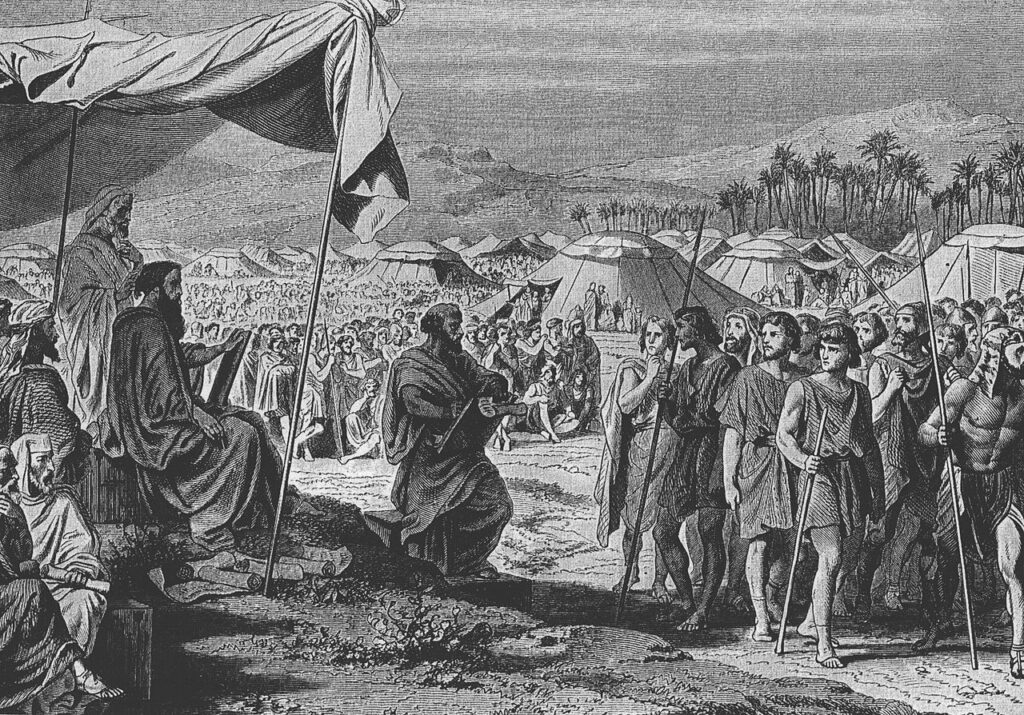Numbering of the Israelites (Henri Felix Emmanuel Philippoteaux – 1894)
The Book of Bemidbar opens on the 1st day of the 2nd month of the 2nd year following the Exodus. The early chapters contain four different censuses – of the Israelite nation. The first was by tribe and clan, the second by military position around the Mishkan, the third was the Levites and the fourth the First-born.
We read Bemidbar before Shavuoth – which, in addition to celebrating the wheat harvest and the bringing of first fruits to the Mishkan/ Temple, is a festival associated with God’s Revelation of the Torah at Sinai. Bemidbar in Hebrew means the ‘Wilderness’, the place where the Israelite national narrative played out until they arrived at the border of Cana’an. In English it is called the Book of Numbers.
There is a well-known Midrash explaining why the Torah was given in the Midbar and not in a more populated area. Because, in order to acquire Torah, we must first void our minds of worldly, mundane concerns similar to the emptiness of a desert. Another way of saying this is that to experience the Divine Presence, we must set aside our self-centred focus.
And yet, the material world summons us to count, to number and to quantify. How do we reconcile these competing instincts – an egoless approach in a material-driven world?
Bemidbar repeatedly cites the word ‘Toledotam‘ (‘their generations’) to describe both the passage of time and the handing onward of wisdom. Just as we’re commanded to see ourselves in each generation as having been ‘Redeemed from Slavery’, so too each generation must account for how we’ve ‘Received the Torah’.
As human beings, we attend to physical, material needs. But when we’re able to put our ideas and ideals above these basic creature comforts, we begin to transcend our innate selfishness. That is when we’re capable of uncovering the spiritual principles of Torah and incorporating them into our lives.
Each of us has a Mind housing our thoughts and a Heart preoccupied with emotions and time. It is within our grasp to direct our Minds and Hearts to understanding and improving the world around us. ‘It is not for you to complete the work, but nor are you free to desist from it.’ (Ethics of the Fathers 2:21)
Bemidbar/ Shavuoth is more than an opportunity to be counted, but for making our lives count!
